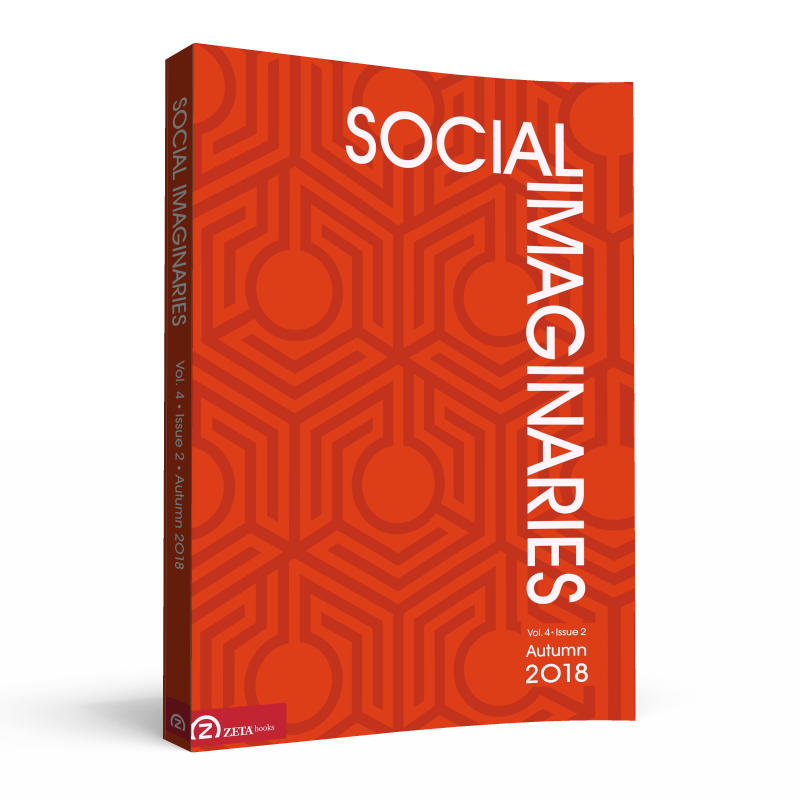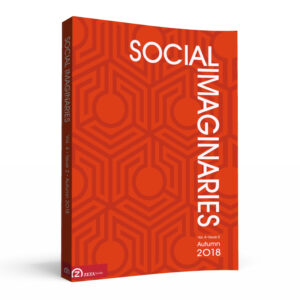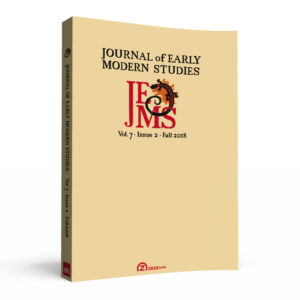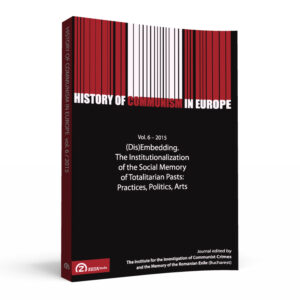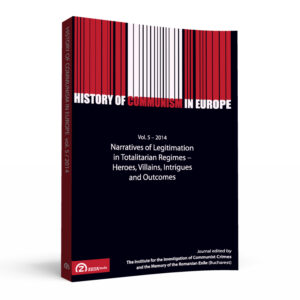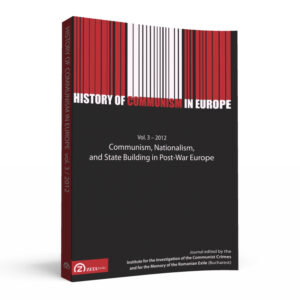TABLE OF CONTENTS
Jeremy C. A. Smith, Paul Blokker and Natalie Doyle: Editorial Introduction
THEMED SECTION: AMERICAN IMAGINARIES
Wolfgang Knöbl: Civilizing’ the Americas! A concept goes West!
- Abstract: As is well known, the concept of civilization and all the imaginaries around this term played an important role in imperial contexts insofar as mostly Western states legitimated their oftentimes ruthless behaviour in other parts of the world by referring to their ‘civilizing missions’. What is not so well-known, however, at least not in the so-called West, is that the concept of ‘civilization’ also played an enormous role in conflicts within (‘Western’) societies, conflicts that were not necessarily shaped by racial categories. The article shows how the concept of ‘civilization’ came into being in France in the middle of the 18th century before it spread into other European languages and—by doing so—slightly changed its meanings depending on peculiar socio-political contexts. Such a change of meaning also happened, of course, when the concept was adopted in the Americas. Contrasting the cases of the United States of America on the one hand and ‘Argentina’ on the other, it will be demonstrated how and why intellectuals in the first half of the 19th century made use of this concept and changed it according to the conflicts they perceived as vital in their interpretation of their own society. Tracing the intercontinental history of the concept makes it again clear how tricky it might be to use ‘civilization’ and ‘civilizations’ as analytical tools in order to theorize historical paths and patterns in different parts of the world.
Jeremy C A. Smith: North America’s Metropolitan Imaginaries
- Abstract: Scholars of modernity have taken a particular interest in processes of urbanization and—thinking of Simmel, Benjamin, Mumford and Weber—the character of different varieties of city. From a different angle, notions of urban imaginary have gained greater purchase in the field of contemporary urban studies in comparative analysis of varieties of city. This essay begins with notes on both classical accounts of the city in social theory and current concepts of urban imaginaries. The notes revolve around the essay’s main topic: the institution of cities of New World, specifically those of the United States and Canada. Paralleling Castoriadis’ conception of the imaginary institution, the present author argues for a more exact notion of metropolitan imaginaries, differentiated from the broader subject of urban imaginaries. ‘Metropolitan imaginaries’ denotes processes of urbanization at the heart of networks of migration, transport, and flows of capital and culture. As part of larger imaginaries, metropolises generate immigrant cities. The specific kind of creation in question produces creativity also by concentrating intellectual and creative schools of design in architecture and visual culture. In sum, metropolises are not merely part of networks of connection and creation; they produce networks and act as the hubs of interaction and creativity within larger social imaginaries. The essay explores this argument in the contexts of US and Canadian modernity and state formation, with specific foci on New York, Chicago, and Toronto. The conclusion notes two limitations to the case presented here and sketches planned directions for future research.
Martín Plot: Political Horizons in America
- Abstract: In this paper, I go back to French philosopher Maurice Merleau-Ponty’s influence on Claude Lefort’s theory of democracy in order to offer a revised understanding of political regimes as coexisting and competing horizons of politics. These horizons develop from differing positions regarding the political enigma of the institution of society—its staging, its shaping, and its making sense of itself. A theological understanding of such political institution of society will be described as fundamentally voluntaristic, while an epistemic understanding will be described as, in its radical iteration, potentially totalitarian. This theorization is triggered by an interpretive perplexity: what happened to the United States in the aftermath of 9/11, in its War on Terror, in its committing of the supreme international crime of aggressive warfare, in its embracement of a massive policy of executive, global targeted assassinations and of a white nationalist, xenophobic politics? Is the theologico-political horizon becoming once again dominant in America? Is the epistemic, plutocratic regime taking over instead? Are they coordinated in their effort to undermine an egalitarian understanding of the American republic? These are the interrogative driving forces behind this investigation.
Gustavo Morello: Latin America’s Religious Imaginaries
- Abstract: This paper explores how the unfulfilled promises of modernity, both of security and prosperity, affect the Latin American religious imaginary. I study the idea of a ‘religious social imaginary’ not only as a theoretical construct, but also as an interpretative tool to analyze empirical data. This imaginary is composed of an image of the divine in relationship with humanity, a set of cultural practices that shape these interactions, and the expression of a moral order that mirrors this construction of divinity. I use a nonrandom sample of 12 in-depth, semi-structured life history and object elicitation interviews with poor Latin Americans from Córdoba, Argentina, Montevideo, Uruguay, and Lima, Peru. Latin Americans of low income and limited educational backgrounds are the best informants for this study because they are, paradoxically, both the people modernity left behind as well as the popular image of a threat to modernity’s benefits for the rest of the population. I find that the participants construct an image of an accessible, intimate divinity that provides both companionship and protection, which manifests in other people as well as objects, and requires believers to embody these same caring characteristics. I propose that the construction of this contemporary Latin American religious imaginary is not only a response to the unique experience of modernity in the region, but also a tool of resistance against the hegemony inherent in modernity.
VARIA
Peter Wagner: Social and political philosophy, historical-comparative sociology and the critical diagnosis of the present: a reply
- Abstract: In reply to the contributions to Social Imaginaries vol. 4, no. 1, this article reviews the development of the research programme that the author has been pursuing over more than three decades. It places the emphasis on the conceptual and methodological requirements for a historical sociology of social change. It insists, on the one hand, on the need to avoid overly strong conceptual presuppositions to analyze social phenomena of large scale and long duration, while, on the other hand, sustaining the notion that a minimum of social and political philosophy as well as philosophy of history is necessary to comprehend the ways in which history is directed. Further emphasis is given to the difficulties that arise when studying social phenomena before 1800 and outside Europe, due to the strong epistemic impact European global domination has had since the “great divergence” at around 1800. The article concludes with reflections on the adequate kind of conceptual distinctions that are needed when analyzing large-scale phenomena such as “societies” as well as on the link between scholarly work and a critical, action-oriented diagnosis of the present time.
Dmitri Nikulin: The eternal return of the other: Benjamin on the social and political effects of boredom in modernity
- Abstract: This article investigates the constitutive ties of modernity and the modern subject to the phenomenon of boredom, through its interpretation by Walter Benjamin. The nineteenth century—with Paris as its capital—forms the material for this interpretation, and the fragmentary constellations of quotation and reflection in Convolute D of The Arcades Project present boredom both in its social aspect (the city as protagonist) and as experience. A number of the forms of boredom is thus elaborated: the relation of city dweller to nature and the cosmos, as weather; in its temporal orientation, as waiting; the mechanistic character of the modern world and its subject, as repetition; in the cycles of production and consumption, as the ideological boredom of the ruling class. Among three of Benjamin’s typologies for the bored modern subject—the gambler, the flaneur, and the one who waits—I turn particularly to the experience of the flaneur, the dedicatee of Convolute D. In flaneurie the experience of boredom is accumulated and distributed, and in this way the flaneur is in the city but also constitutes and memorializes it, as boredom. This ambivalent relation to the urban fabric and landscape is also captured in his characteristic observation and exhibition, his consumption without acquisition and without production. After considering some possible antitheses to Benjamin’s types of boredom, I conclude with the reflection that passing over boredom to its opposite would require the overcoming of modern subjectivity itself.
Aaron McKeil: The Modern International Imaginary: Sketching Horizons and Enriching the Picture
- Abstract: This article aims to bridge the literature of modern social imaginaries with the growing study of modernity in International Relations. Employing a Taylorian conceptual framework and account, the case is made for understanding modern international relations and enabled and constrained by a “modern international imaginary”, which forms a significant part of the modern social imaginary more generally. It is argued that a modern social imaginaries approach offers a means to deepen and enlarge the growing studies of the international implications of modernity, by illuminating overlooked cultural preconditions and forms of modern international relations. First, a social imaginaries approach reveals the international to be coeval with the emergence of modern social imaginaries in general, and that it has come to form their “highest” and most consistently and severely problematic realm. Second, its insight into the enabling and constraining effects of social imaginaries offers a basis for studying the horizons of the international towards a “global imaginary”. Third, unpacking the modern international imaginary offers qualitative benefits for international theory as practice.
NOTES AND DISCUSSION
Johann P Arnason: Spaces, Connections, Civilizations. Comments on Debating Civilisations
Nicolas Poirier: Castoriadis in Australia: Interview with Suzi Adams

